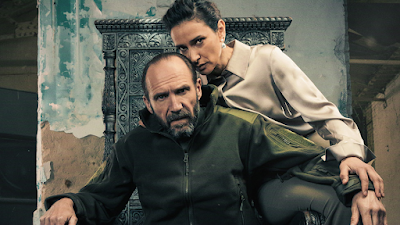I have been reading The Drowned and the Saved. Quite different from If This Is a Man, The Truce, and Moments of Reprieve. The other books are narratives, this one is analytical. And it is, as people say, Primo Levi’s angriest book.
He writes about the hatred, cruelty, sadism, and “useless violence” of the Nazis; about the degradation, humiliation, and dehumanisation in the camps; about the things the inmates had to do to survive and the compromises they had to make; about the insurmountable gap between what people think it was like in Auschwitz and what it was actually like; about moral judgement and “the grey zone”; about the shame of Holocaust survivors; about memory; about bearing witness…
Just so you get an idea of the writing, here’s an excerpt from the chapter “Useless Violence”:
“You entered the Lager naked: more than naked, in fact, deprived not only of your clothing and shoes (which were confiscated) but also of all the hair on your head and body. […] A man who is naked and barefoot feels as if his nerves and tendons had been severed: he is defenceless prey. Clothing, even the filthy clothes that were handed out, even the shoddy wooden-soled clogs, is a tenuous but indispensable defence. Without it, a man no longer feels like a human being. He feels like a worm: naked, slow, ignoble, prostrate on the ground. He knows that he might be crushed at any moment.”
(translated by Raymond Rosenthal)
Lucid, sharp, unsentimental. Makes me think of that passage in King Lear: “unaccommodated man is no more but such a poor bare, forked animal as thou art.”
There are so many great passages, so many haunting passages that it’s impossible to quote them all, so I’m just going to pick another one from the same chapter:
“Until September 1944, there were no children in Auschwitz: they were killed with gas upon arrival. After this date, entire Polish families began to arrive, families who had been arrested at random during the Warsaw uprising: all of them were tattooed, including newborns.
The procedure was relatively painless and lasted less than a minute. Its symbolic meaning was clear to everyone: this is an indelible sign that you will never get out of here alive; this is the mark branded on slaves and on livestock being sent to the slaughter, which is what you have become. You no longer have a name; this is your new name. The violence of the tattoo was gratuitous, an end in itself, a pure insult: wasn’t it enough to have three cloth numbers sewn on your pants, jacket, and winter coat? No, something more was needed, a nonverbal message, so the innocent would feel their sentence inscribed in their flesh. The tattoo also constituted a return to barbarism that was particularly upsetting to Orthodox Jews, since it is precisely in order to distinguish the Jews from the barbarians that tattooing is forbidden by Mosaic law (Leviticus 19:28).”
I don’t think many people today—I’m especially thinking of those who compare other things to the Holocaust—are fully aware of its horrors. Not only so, Primo Levi says a few times throughout the book that the survivors cannot convey the worst of the camps—they did not touch bottom:
“Let me repeat that we, the survivors, are not the true witnesses. This is a troublesome notion that I became aware of gradually by reading other people’s memoirs and rereading my own years later. We survivors are an anomalous and negligible minority. We are the ones who, because of our transgressions, ability, or luck, did not touch bottom. The ones who did, who saw the Gorgon, did not come back to tell, or they came back mute. But it is they, the “Muselmänner,” the drowned, the witnesses to everything—they are the ones whose testimony would have had a comprehensive meaning. They are the rule, we are the exception.” (from the chapter “Shame”)
It is an intense book, one of the most powerful books I have ever read. The great thing about Primo Levi is that he doesn’t only describe his experiences, he ponders and makes one think about evil, about tyranny, about degradation, about hopelessness, about senseless violence, about senseless kindness (to use Vasily Grossman’s phrase in Life and Fate), about moral judgement, about outsiders’ inability to understand, about what it means to be human, and so on. It is a book everyone should read.
